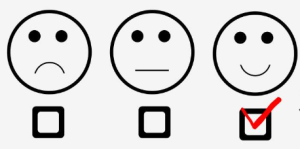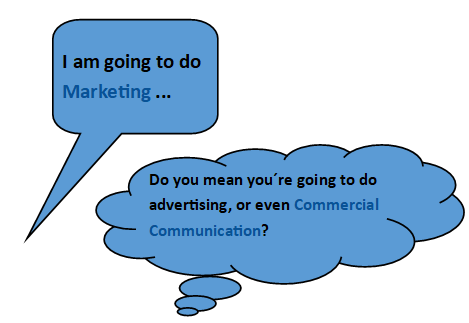by Diego San Román

Every business is born from a product and/or service idea that may have value for someone. That is, for potential users/buyers of that idea. The economic compensation resulting from the purchase of that value will define the result of the business; the size of which will be defined by the number of buyers willing to pay for that value.
There are many ideas, but not all of them are “valid”. When a light bulb goes off in your head, and you think you’ve discovered the best business idea ever, you feel great, but what questions should you ask yourself to prove that that idea has value, i.e. opportunities for success as a business?
I recommend a series of ten sets of questions, in three in-depth sequences, that can help you evaluate it.
In the first sequence, the most superficial, we will ask ourselves 3 groups of questions
Question No. 1: Will this business solve a need, solve a problem, or satisfy a desire? If you can do any of those three things, it’s starting to be an idea to consider.

Question group No. 2: Is this the right time and place for this business? From the economic or political situation to the climate, to access to technologies and socio-cultural structures, there are countless external and changing opportunity factors that will influence the success of a business.
Think of the rise of sharing apps and the sharing economy that offered consumers more affordable ways to get around (Uber), walk the dog (Rover), get work done (Task Rabbit), and have food and items delivered right to their homes (Postmates). And that, in turn, also gave people the opportunity to make money on their own schedules. Considering today’s economy and new technologies, it was the right time and place for these applications to succeed. Is there a similar opportunity for your business to succeed in the here and now?
Question group No. 3: What barriers and constraints will this business idea face? Financial, cost and start-up, competition and existing alternatives, socio-cultural attitudes, legal attitudes, etc.?
Constraints are challenges, and the key to business success is finding creative ways to overcome those challenges. However, this is the point at which you need to decide if the constraints your business will face outweigh the potential benefits. If there are more pros than cons, you might have a great idea on your hands.

In a second sequence, to investigate and delve deeper into your idea, I propose the following 3 groups of questions:
Question group No. 4: Are there other companies that are already doing what you want to do? You know the old saying, “there’s nothing new under the sun.” So look for companies that have already had the same idea as you, because there probably are. Find out what is the closest thing to your business idea that already exists in the market and ask yourself, “why is my idea better than theirs?
Researching the competition will also help you determine if there are any unmet needs in the market that your idea can solve. Maybe there are already other companies doing what you want to do, but there’s a subset of the population that they’re not serving and that’s your opportunity.
Question Group No. 5: What, how much and where is my market? Market analysis is a critical part of starting any business. It’s the part of the process where you’ll have to ask yourself: Who will be your target audience? What is the size of your market? What are their psycho and demographic characteristics? How much of the market is already taken over by competitors?
Market analysis is also the perfect way to start building a business plan. It will help you focus on a target market and decide if your idea/company is going to serve that market.
In a third sequence, and since turning an idea into a business is expensive, you should ask yourself if you are in a financial position to get it off the ground.
Question Group No. 6: What will be the start-up costs of the business? From the registration and legal costs of its creation, to the design and support of a service; or the design, production and distribution of a product, businesses require an investment in money and time, which can vary substantially, but which you will have to detail as much as possible, to ask yourself if you have enough savings to do it yourself; Or you’ll need to look for investors willing to back your idea.
If you decide to look for investors, you would already be involved in your first marketing and sales action: looking for and negotiating investors who buy your idea and invest their resources in it.

Question Group No. 7: How is this business going to make money? And when is it going to get to a point where it can be sustained? And more importantly, will you be able to keep it afloat until it gets to that point?
If all the answers indicate that you have a viable idea, in a final sequence you should ask yourself perhaps the most important questions.
If you want to know the rest of the questions about the evaluation of your business idea, contact me by email at contacto@factusconsult.com and I will send you the full article.
As marketers we like to believe we are consumer centric in everything we do, but the reality is that we often get lost in processes, tools, and procedures that are more internally focused on who we are as an organization, what we are doing, and what we want to do rather than externally focused on […]
The confusion between “doing marketing” and “engaging in commercial communication” often stems from a partial or simplified understanding of marketing, which can have negative consequences on a company’s sales. Marketing encompasses everything a company or organization does to get more people to buy or support its value proposition more frequently, for a higher exchange value […]
With almost 25% participation in life, all life, and consequently in purchases, all purchases in this country (Spain), those over 65 years of age could, legitimately, initiate a massive protest action against advertising, that is, against advertisers, agencies and media, because of the fondness of treating us mostly as if we were mentally retarded. nerd-sentimental […]
Character is at the core of who we are as individuals and as a society; it’s the foundation of human behavior.






